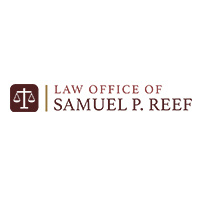Medfield Bankruptcy & Debt Lawyer, Massachusetts
Samuel P. Reef
✓ VERIFIEDCar Accident, Bankruptcy, Divorce, DUI-DWI
Samuel Reef is a practicing lawyer in the state of Massachusetts. He received his J.D. from Suffolk University Law School in 1994. He currently works ... (more)
Ira C. Yellin
Alimony & Spousal Support, Child Support, Adoption, Bankruptcy
Status: In Good Standing
FREE CONSULTATION
CONTACTFREE CONSULTATION
CONTACTKevin T. Jarboe
International, Industry Specialties, Banking & Finance, Bankruptcy & Debt
Status: In Good Standing Licensed: 22 Years
Michael John Polak
Real Estate, Lawsuit & Dispute, Business, Bankruptcy & Debt
Status: In Good Standing
Michael J. Polak
Commercial Real Estate, Civil Rights, Credit & Debt, Bankruptcy & Debt
Status: In Good Standing
Darline Marie Lewis
Real Estate, Industry Specialties, Bankruptcy & Debt
Status: In Good Standing Licensed: 42 Years


